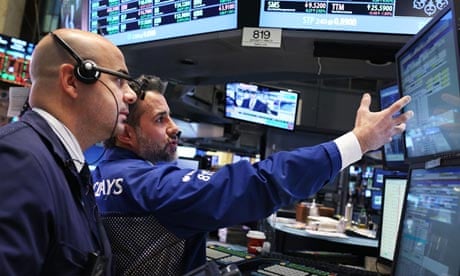Ben Bernanke, the US Federal Reserve chairman, called unemployment an "enormous waste of human and economic potential" as he set new targets for the central bank's massive economic stimulus programme Wednesday.
After a two-day meeting, the Fed said it will keep interest rates at close to zero until the unemployment rate drops below 6.5%. The central bank also rejigged its multi-billion dollar monthly asset-buying programme in a fresh attempt to kickstart the lacklustre US economy as Bernanke warned that the argument over the fiscal cliff threatened to derail the recovery.
In its final meeting of the year, the Federal Reserve Open Market Committee (FOMC) said economic activity and employment had "continued to expand at a moderate pace in recent months, apart from weather-related disruptions".
Although the unemployment rate has declined, the FOMC said it remained "elevated" and set itself a target for reducing the numbers out of work. The US unemployment rate dropped to a four-year low last month of 7.7%, but the latest fall was driven in part by people quitting the labour force.
Bernanke said the decision to set targets made the Fed's policy more "transparent".
The shift is a major move for the Fed, which had previously said it intended to keep interest rates near zero at least until mid-2015. Chicago fed president Charlie Evans has been pressing for the Fed to commit to easing monetary policy until unemployment was 7% or core inflation was above 3%. The policy has become known as the "Evans Rule".
The move underlines the Fed's concern with US unemployment, which remains high even though the country has officially been out of recession since June 2009. Bernanke warned once again that failure to reach an agreement over the fiscal cliff would have dire consequences for the US economy.
Unless a compromise on the year end expiration of tax cuts and imposition of spending cuts can be reached "the economy will, I think, go off a cliff," he said. "I don't think the Federal Reserve has the tools to offset that event," he said. Bernanke said it was "exceptionally important and urgent" that a solution is reached.
"I'm hoping that Congress will do the right thing on the fiscal cliff," he said. "There's a problem with kicking the can down the road."
As the Fed seeks to drive down unemployment and stimulate the economy, the FOMC said it would begin buying $45bn of long-term Treasury bonds each month. The stimulus programme will replace another asset-buying scheme known as Operation Twist.
The latest asset-buying programme follows on from the Fed's decision to launch a third round of "quantitative easing" – QE3 – in September, aimed at stimulating the economy by buying mortgage-backed assets. QE3 is also an open-ended programme, unlike its predecessors. The US is now buying a total of $85bn a month in assets between its stimulus programmes.
"In determining how long to maintain a highly accommodative stance of monetary policy, the committee will also consider other information, including additional measures of labour market conditions, indicators of inflation pressures and inflation expectations, and readings on financial developments," the FOMC said.
Eleven out of 12 Fed officials on Wednesday voted to continue QE3, which buys $40bn of mortgage-backed securities each month.
"Taken together, these actions should maintain downward pressure on long-term interest rates, support mortgage markets, and help to make broader financial conditions more accommodative," the FOMC said.
"In short, the Fed is aggressively trying to add to the economy's strength, but its accommodation has become more clearly conditional. The impact of asset buying is debatable, but over time the effects are significant, in our view. The main risk is that inflation expectations start rising significantly; that has not happened so far," Jim O'Sullivan, chief US economist at HFE said in a note to clients.
"Come stronger unemployment results, elevated inflation readings, or Mayan apocalypse, it seems like Bernanke and his friends on the FOMC are just gonna keep on buyin'," Janney Fixed Income Strategy said in a note to clients.

Comments (…)
Sign in or create your Guardian account to join the discussion